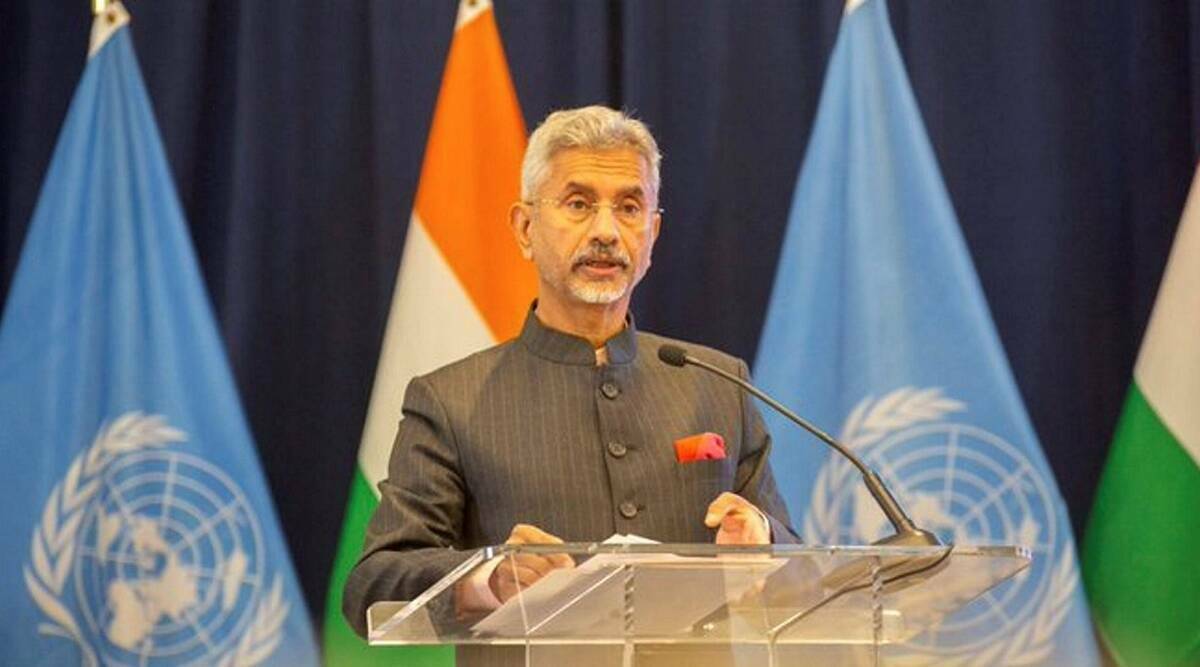S Jaishankar, the External Affairs Minister, stated that terrorists based in Pakistan should not be considered a political tool. The idea that something is blocked without a reason for blocking it challenges common sense.
“We believe that transparency is essential in any decision-making process. Jaishankar spoke to an audience of Indian journalists on Saturday, after wrapping up his New York leg with his address at the UN General Assembly high level session.
Responding to a question from PTI about the repeated delays and blockages on UN sanctions proposals to list Pakistani-based terrorist group leaders, and whether this was brought up during his meetings with global counterparts at the high-level General Assembly Week.
It was brought up in some of the meetings. It was also discussed in my BRICS intervention,” he stated, referring to the meeting between the foreign ministers of Brazil and Russia, India, and China on Thursday at the General Assembly. The meeting saw the Brazilian Foreign Minister Carlos Alberto Franco Franca, Russian Foreign Secretary Sergey Lavrov and the Chinese Minister of Foreign Affairs Wang Yi, and the Minister of International Relations and Cooperation of South Africa Naledi Panor.
China, a permanent member of Security Council with a veto, has repeatedly blocked the US, India, and other allies from blacklisting Pakistan-based terrorists as per the 1267 Al Qaeda Sanctions regime.
China placed a halt to a proposal by the US and India at the United Nations to designate Lashkare-Taiba terrorist Sajid Mur, who wanted for his involvement with the 26/11 Mumbai terrorist attacks as a global terrorist.
China put a halt to a proposal made by India and the US at the United Nations to blacklist Abdul Rauf Azhar. He is the brother of Jaish-e Mohammed chief Masood Azhar as well as a senior leader of Pakistan-based terror organization. In December 2010, the US sanctioned Abdul Rauf Azhar (born in Pakistan in 1974)
China put an end to a joint proposal from India and the US in June 2015 to list Abdul Rehman Makki, a terrorist based in Pakistan, under the 1267 Al-Qaida Sanctions Committee (UN Security Council).
Jaishankar stated, “We hope that reason will prevail and people would not arbitrarily order politically block,” adding that it is not inter-state politics that we are referring to.
“We want to convey our message that terrorist acts are not political. It shouldn’t be used as an instrument of political manipulation, and its consequences should not become political.
Everyone will answer yes if you ask the UN if they consider terrorist acts a common threat. We are saying, “Well, if that is your position, then why not your policies and your actions reflect it.” he added.
In his UNGA address, Jaishankar stated that no rhetoric, regardless of how sanctimonious, can cover up bloodstains, and nations who support proclaimed terrorists at the United Nations do not advance their own interests or their reputation. This clearly refers to China and Pakistan.
India, having been the victim of cross-border terrorism for many decades, strongly advocates a “zero tolerance” approach. We believe there is no reason to justify any act of terror, regardless of its motivation. Jaishankar stated in the UN General Debate that no rhetoric, no matter how sanctimonious, can ever cover blood stains.
“The United Nations responds against terrorism by sanctioning its perpetrators. Politicians of the UNSC 1267 Sanctions Regime, sometimes even going to the extent that they defend proclaimed terrorists do so at their own risk. He said, “They do not advance their own interests or their reputation.”
Jaishankar, the Chinese Foreign Minister, had listened to Jaishankar’s comments during a ministerial meeting of the Security Council on Ukraine this Week. He stated that fighting impunity was crucial for the larger pursuits of peace and justice. This count must be communicated clearly and unambiguously by the Security Council. He stated that politics should not be used as a cover to avoid accountability. It is also not a way to encourage impunity.
We have unfortunately seen this in the Chamber recently when it comes down to sanctioning some the most terrorous terrorists in the world.” “If egregious acts committed in broad daylight are not punished, this Council should reflect on the signals that we send on impunity. He said that consistency is essential if we want to maintain credibility.”
